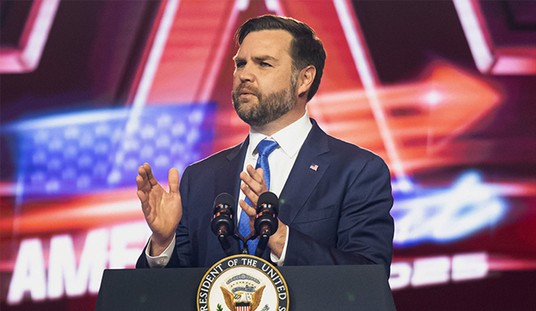Brent Bozell has an essay in which he notes the remarkable timing of two national news anchors retiring almost simultaneously: Tom Brokaw yesterday, and Dan Rather in March.
Meanwhile, Peggy Noonan, who once wrote copy for Rather, has a remarkably sympathetic take about her former employer:
If you were a young Dan Rather you knew which side was the side to be on. You knew which side your bosses were on. You knew which side would lead to your rise. And you knew which side would win.
It wasn’t exactly complicated. Every conservative in America in the last century, especially in the media and in the colleges, knew they would be dinged and damaged if they held to their beliefs. Every liberal in the media and the academy knew they could rise if they espoused liberal views. Dan wanted to rise.
Probably the worst moment in his career, because it was arguably the one most obvious in showing bias and a political agenda, was the time Dan tried to beat up George H.W. Bush live, on the “CBS Evening News,” over Iran-contra. Mr. Bush decked him instead, and with a question that reverberates: How would you like your whole career to be judged by one mistake? I do not doubt that CBS News that night thought it was going to take down a vice president, and wanted to. And was embittered by its failure. Which may have contributed to the years long, Ahab-like quest of producer Mary Mapes to bring down George W. Bush with documents it took bloggers less than 24 hours to reveal as fabrications.
And yet. Dan Rather was one of the great breaking-news reporters of our time. Hurricanes, earthquakes, big sudden stuff–he loved it, and he knew how to cover it. A friend reminded me of the beauty with which Dan asked for silence as CBS’s cameras lingered on the sun going down on quake-ravaged San Francisco in 1989. And I think of his delicate coverage of stories like Princess Diana’s funeral.
I don’t think Dan Rather ever saw himself as being destructive in his views and biases when the story of the night was political. He always seemed to me to love America, was moved, always, by those who fight for it. He respected the armed forces and their sacrifices. He surprised me one day by reciting from heart and with tears in his eyes the last letter of Travis at the Alamo. And there was the time, after 9/11, when he went on David Letterman’s show and, in speaking of the heroism of what he’d seen at Ground Zero and the tragedy of it, burst into sobs. He felt it. Anyone who felt 9/11 down to his bones–well, who’s to gainsay that?
OK, I will.
Once I was able to connect to the ‘Net via broadband (around March of 1999, I think), I pretty much abandoned most TV news, except when there’s a huge, breaking story. Four years before RatherGate became a household word, the last time I watched Dan live, was when he interrupted a late NFL game on Sunday, November 26, 2000 to announce that then Florida Secretary of State Katherine Harris had certified the vote, and announced that George W. Bush had won Florida–and by doing so of course, the presidential election.
My jaw dropped listening to the way Rather editorialized the news instead of reporting it. He did it in such a way as to interject maximum bias and opinion into what should have been a straightforward news story:
Rather began: “Nineteen days after the presidential election, Florida’s Republican Secretary of State is about to announce the winner










Join the conversation as a VIP Member